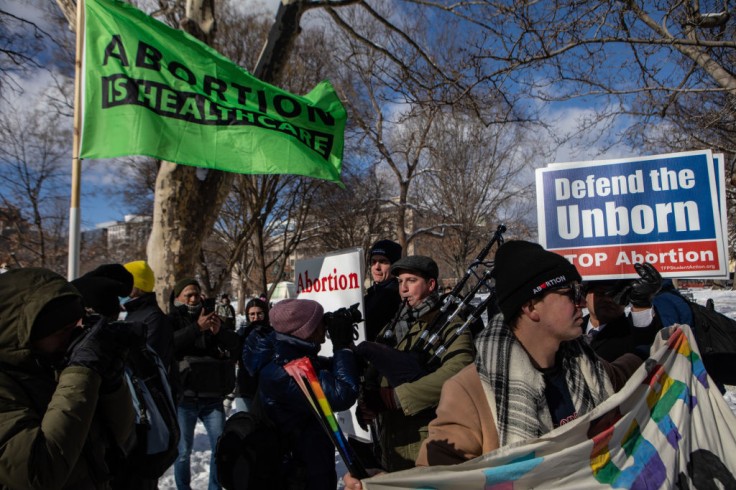
The U.S. Department of Health and Human Services sides with an Oklahoma hospital in an abortion denial to a woman in a medical emergency.
The institution stated that the hospital did not violate any federal law in place by denying a woman an abortion and telling her to sit in the parking lot and wait for her condition to get worse.
Jaci Statton filed a formal complaint with the department and stated that she was pregnant in early 2023. During her pregnancy, she experienced alarming symptoms, such as nausea and severe pain.
However, doctors in Oklahoma, which has one of the most stringent abortion bans, say that she has a partial molar pregnancy, which could be fatal if left untreated.
Medical providers tell Statton that unless she is actively on the verge of a heart attack or crashing in front of them, they will not provide her with an abortion.
US Health Department Abortion Ruling in Oklahoma Case
The case at the center of this development involved Jaci Statton, a 26-year-old woman who experienced a nonviable pregnancy and sought an abortion in Oklahoma.
According to the Health Department's abortion ruling, the Oklahoma hospital did not violate federal law. The hospital's decision to ask Statton to wait in the parking lot until her condition qualified her for an abortion under the state's strict ban has been a point of contention.
Ultimately, Statton and her husband traveled out of state to have an emergency abortion rather than wait for her health to deteriorate.
The backdrop of this incident is the Supreme Court's 2022 decision to revoke the nationwide right to abortion, leading to stricter abortion laws in several Republican-led states, including Oklahoma.
These laws have been the subject of numerous abortion denial cases, raising questions about women's access to necessary healthcare.
The improper abortion complaint filed by Statton sheds light on the legal complexities surrounding the Emergency Medical Treatment and Labor Act (EMTALA) and its application in states with stringent abortion bans.
The Biden administration had previously informed hospitals of their obligation to provide abortion services when the mother's life is at risk, indicating that EMTALA supersedes state bans lacking exceptions for medical emergencies.
However, the dismissal of Statton's complaint by the Health Department marks a significant moment in the ongoing scrutiny over how EMTALA is applied after the Supreme Court ruling.
The situation with Statton, who was denied timely medical intervention, underscores the dilemmas faced by healthcare providers and patients in navigating these laws.
This incident reflects the challenges faced by women in states with restrictive abortion laws, highlighting the clash between state regulations and individual health emergencies.
Abortion Denial in Republican-Led States
The Center for Reproductive Rights, representing Statton, has expressed concern over the decision, highlighting the critical need for clarity and protection in emergency medical situations.
The case has also intensified the debate among reproductive rights advocates, who are pushing back against restrictive state laws. With ongoing lawsuits in states like Idaho, Tennessee, and Texas, the issue of abortion access remains a contentious and evolving legal battle.
The recent ruling by the US Health Department in the Oklahoma case is not just about a single incident of abortion denial; it represents a broader struggle over women's rights and healthcare access in America.
As legal battles continue, the implications of this decision will likely reverberate through future cases and policy discussions.